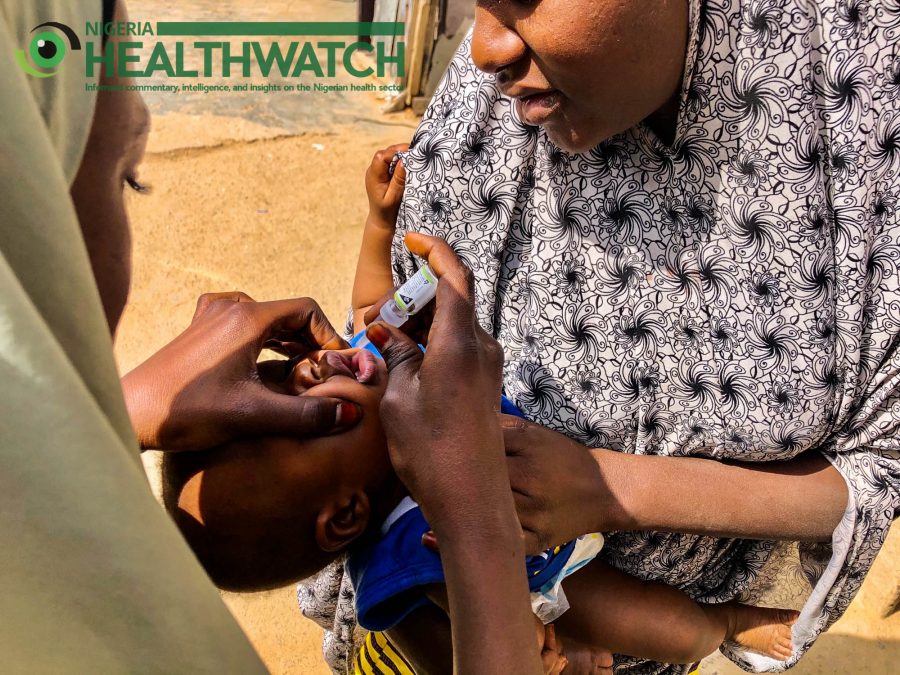Health
UNICEF Begins Vaccination of 9.8 Million Children in Five Northern Nigerian States for Polio and Measles

UNICEF has started a large-scale vaccination campaign targeting 9.8 million children in northern Nigeria, focusing on protecting against polio and measles.
The United Nations Children’s Fund (UNICEF) has initiated the vaccination of at least 9.8 million children in Adamawa, Bauchi, Gombe, Plateau, and Taraba States against measles, polio, and other vaccine-preventable diseases.
This information was revealed by Patrick Akor, a Health Officer at the Bauchi Field Office of UNICEF, during a press briefing with journalists in Bauchi on Friday.
Akor stated that UNICEF is assisting the five states within the Bauchi Field Office to carry out the 2024 integrated vaccination campaign aimed at reducing polio, measles, and other vaccine-preventable diseases among children.
He mentioned that the support included logistics, vaccine supplies, publicity, and other necessary elements for successfully targeting over nine million children under five years old.
Akor announced that the Oral Polio Vaccination campaign aims to reach at least 6,815,691 children aged between 0 and 59 months. Additionally, over three million children are targeted for measles vaccination during the initiative starting today (Saturday, November 2, 2024).
He announced that the campaign would extend to Bauchi, Taraba, Adamawa, Gombe, and Plateau States. He also mentioned that an integrated measles vaccination drive for children, among others, would be administered within the next week.
He further explained that the decision was driven by Nigeria’s failure to achieve the 95 percent vaccination target coverage.
“The previous measles campaign took place in 2022, and it showed that we fell short of our target coverage of 95 percent. This highlights the ongoing threat measles poses to children,” he stated.
The health officer observed that measles and other childhood diseases contribute to mortality, blindness, and various serious health conditions.
Akor emphasized the necessity for governments, with backing from UNICEF and other UN agencies, to actively implement the campaign. This will ensure that children in remote or security-compromised areas are shielded from measles and other diseases preventable by vaccines.
The UNICEF Health officer clarified that Gombe, Plateau, Bauchi, and Adamawa will be conducting a vaccination campaign targeting measles along with other diseases like polio. In contrast, Taraba state will focus solely on implementing the OBR for polio.
He stated that UNICEF, in collaboration with other partners and the federal government through the National Primary Healthcare Development Agency and state agencies, has been working to cover various aspects of the campaigns.
Additionally, George Eki, a Social Behavioral Change Specialist with UNICEF, stated that the Bauchi Field Office has provided logistical support to all five states, focusing particularly on vaccine distribution to ensure the campaign’s success.
Eki also mentioned that UNICEF has supplied resources to ensure the proper storage of vaccines, alongside efforts in advocacy communication and social mobilization to enhance wider coverage.
He explained that UNICEF is assisting all states to raise public awareness about the vaccination campaign and inform them of the age group targeted for child vaccinations.
“We achieved this by implementing a range of community engagement activities and collaborating with traditional, religious, and local leaders as well as teachers. We recognize that school children are the primary beneficiaries of the vaccines,” he stated.
Regarding zero dose, I will refer to Bauchi; there are 13 local government areas with a zero-dose status.
Since the beginning of this year, you have been tracking a series of outbreaks, including those in other states like Gombe. We’ve experienced cases of meningitis, primarily due to children not being fully vaccinated. If all children were completely vaccinated, these outbreaks could be prevented.
“Therefore, in this day and age, it’s unacceptable for us to have children in communities who haven’t received any vaccinations. Every child has the right to be protected from diseases that vaccines can prevent, so this campaign is clearly designed to ensure every child receives these crucial immunizations.”
He also mentioned that during the campaign period, along with polio vaccinations, other routine vaccines would be offered.
When the child arrives for their measles vaccine, there are opportunities to receive any other missed vaccinations through routine immunizations offered at field posts and during house-to-house visits,” Eki stated.
